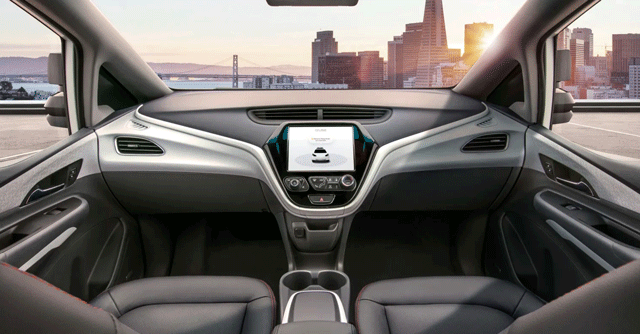
General Motors makes bold claim to sell fully autonomous cars by 2025


General Motors, one of the biggest automobile conglomerates in the world, has made a rather fantastic and bold claim of bringing a road-legal, fully autonomous car to consumer markets by the middle of this decade. While most major global carmakers are known to be working on some form of autonomous vehicle technology, the claim made by GM chief executive Mary Barra at the ongoing Consumer Electronics Show (CES) 2022 is the first instance where a carmaker has given a timeline for a fully road-legal consumer autonomous vehicle.
Barra did not talk about exactly what kind of vehicle would this be, or any other specifics in terms of what this said vehicle would bring to the roads. However, she did suggest how the company is working towards its self-appointed goal. The latter involves Cruise, GM’s majority-owned subsidiary company.
According to Barra, the company will unveil its new handsfree driving platform, called Ultra Cruise, by 2023. The plans for the latter would progress in conjunction with GM’s electrification efforts, and be launched on an upcoming EV -- the Cadillac Celestiq luxury sedan. Chevrolet, arguably its most popular brand at least in India, will also introduce a host of EVs, including the 2023 Silverado pickup truck, and the Equinox and Blazer eSUVs. All of these cars could feature some form of assisted or autonomous driving, as the company builds up towards its mid-decade claim.

Also read: MG Motors India taps KoineArth's NgageN platform India to sell NFTs
The GM Ultra Cruise platform was recently unveiled, and is built on Qualcomm’s 5nm scalable architecture. The platform uses its proprietary software layers and human-machine interface (HMI), and uses cameras, radar (radio detection and ranging) and lidar (Light Detection and Ranging) sensors to offer 360-degree positional and object awareness.
Interestingly, Ultra Cruise’s unveiling also came with a warning for potential future users to remain road-aware, which is what makes Barra’s latest claim an even more startling one. Systems such as Tesla’s Autopilot have made claims of being ready to offer completely autonomous driving, but regulations coupled with a lack of full-scale redundancies in the engineering of these systems mean that fully autonomous cars are still one for the future.

In a 2018 road trial, for example, the first known pedestrian fatality occurred in a self-driving Uber vehicle leading to the death of Elaine Herzberg in Arizona, USA. The incident was followed by Uber suspending its self-driving vehicle tests in the region, and critics calling for development of more robust anti-collision systems -- before technology and automobile companies are allowed to conduct further road tests of autonomous cars.
